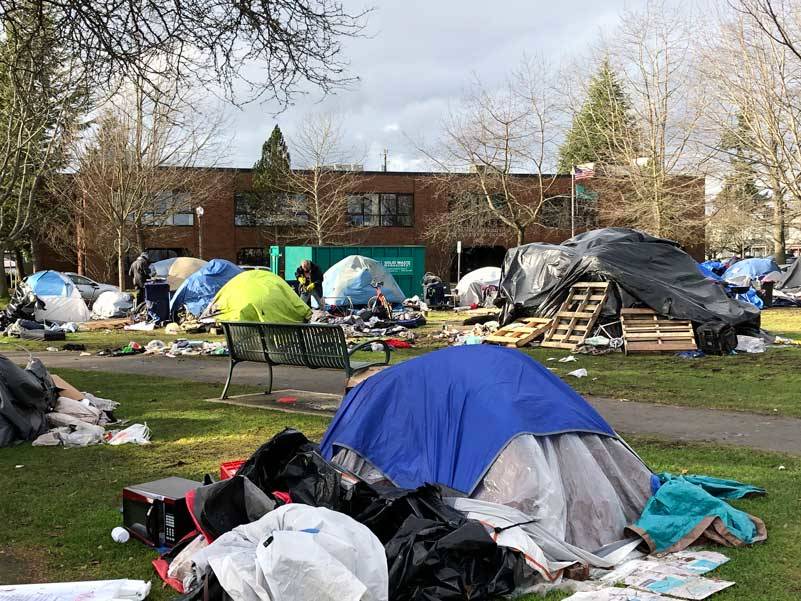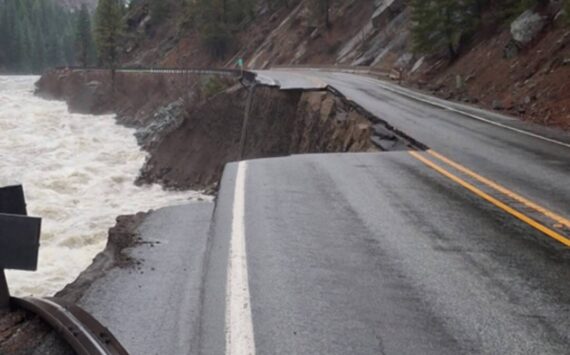By Morf Morford
Tacoma Daily Index
You may have noticed that some are using the term “house-less” in place of the term “homeless”.
I have mixed feelings about it.
I’ve used the term and understand the intent behind it.
The premise is that, to a large degree, the only, or perhaps primary difference between those living in tents or under tarps on our sidewalks and the rest of us is that some of us are “housed” and some are not.
There’s a major distinction between “home” and “housing”.
“Housing” is relatively easy to provide.
“Home” is an entirely different concept.
Home is the place that, when you have to go there, they have to take you in. – Robert Frost
Most of us might think that there is a bright line, a clear and solid distinction, between being “homeless” or “housed”.
If only.
Housing policies and zoning regulations are based on the premise of solid definitions of housing and shelter.
The term “home” is a bit too fluffy for urban regulations.
Picture a framed poster with a saying like “Home is where the heart is” or “Home is where we all begin”.
In other words, for most of us, there is no established definition of home, but if anything, it is a place where people feel attached, comfortable, and secure.
Whether you change residences frequently or not, home is where you belong.
And, of course, “belonging” is an even fuzzier term than “home”.
But “home” is far more than a set of walls and a roof where we find ourselves and, one would hope, find some refuge, safety and comfort.
In the past year or two, as many of us have spent more time than usual at home, and many of us are spending far more than we ever would have imagined to buy or rent a much needed home, some new definitions and ways of thinking about home have emerged.
Who, for example, just a couple years ago, considered home a core aspect of what has become known as “generational wealth”?
And who of us would ever imagined, just a year or so ago, that working form home would be a key element of our next home search?
Way back in 2008, The Pew Research Center conducted a survey of 2,260 American adults – https://www.pewresearch.org/social-trends/2008/12/17/who-moves-who-stays-put-wheres-home/.
Among other things, they asked participants to identify “the place in your heart you consider to be home.” Thirty-eight percent of the respondents did not identify the place that they were currently living to be “home.”
Twenty-six percent reported that “home” was where they were born or raised; only 22 percent said that it was where they lived now.
Eighteen percent identified home as the place that they had lived the longest, and 15 percent felt that it was where their family had come from.
Four percent said that home was where they had gone to high school.
In other words, few of those surveyed, and very few of us, have a clearly defined sense of even our most basic reference points of where we fit in and belong.
In essence though, “home” is where we feel in control and properly oriented in space and time – where we belong in ways we can barely define or even notice – except perhaps when we are NOT there or have somehow been torn out of it.
“Home” for most, if not all of us, is the center of the world and a place of order that contrasts with the chaos and unspeakable hazards “out there”.
Consider America’s most beloved classic movie about “home” – “The Wizard of Oz.” Dorothy doesn’t seem to know where, or even who, she is until she recognizes that “There’s no place like home.”.
“Home” then, is not just a place, it is who we are when we are there – and who we make it with.
Yes, we have a “housing” crisis all around us, from the (often) prohibitive cost of housing to the seemingly ever-growing morass of tarps, tents and garbage accumulating by the day on our local landscapes.
But more than the mess and hazards of the streets and the lifetime of debt by those who did buy in this overheated real estate market, we do in fact have a “homeless” crisis.
Far too few of us have any sense of being connected with, of belonging to, any particular place.
“Home” for many of us, is where, and with whom, we happen to be.
Few of us belong, we just find ourselves where we are.
For most Americans, with ethnic roots and family DNA and histories many thousands of miles away, this is unavoidable.
And for many of us in the Greater Puget Sound area, work opportunities or military deployments brought us here – and something like inertia, and not having any other place to go, keeps us here.
But is it, or will it ever be, “home”?
Or will we only know that when or if we leave?
“House-less” might be a more technically correct term, but “housed” or not, many people I know are still looking for “home”.
“Housing” is what is built, and a place we inhabit. “Home”, in ways we can barely describe, is what we make.
We might have adequate, even desirable or expensive, shelter, but a “home” that we take care of and in many ways we can’t explain, takes care of us, is still far out of reach of many of us.
Home is where we build wealth, where many of us work, where we find refuge and creativity, where we belong, and where we find, make and discover ourselves.
And yes, as Dorothy put it, “There’s no place like home.”





